Turn any article into a podcast. Upgrade now to start listening.
Premium Members can share articles with friends & family to bypass the paywall.
Writing is easy when you do a lot of it, but there are a few circumstances when it’s hard: when the news of the day is so queasy that you can’t bear it; when every decent person is bound to hold the same opinion about it; when there’s no way to avoid pieties in discussing it.
Pieties—even more than clichés—are enemies of good writing. Clichés may bore the reader, but moral recitations risk insulting his or her intelligence: Do you really think I need to be reminded of this perfectly obvious thing that I’ve believed my whole life?
Human beings whom you dislike are human beings. Liberalism is finished if people fear being murdered for their beliefs. Political violence leads to reprisals, which lead to counter-reprisals, accelerating the third-worldification process. I watched each of those sentiments stream in ad nauseam on social media yesterday afternoon and felt condescended to.
I don’t need to be reminded of these perfectly obvious things that I’ve believed my whole life. I doubt that any Dispatch subscriber does, either.
But some Americans do, don’t they?
The pious incantations on platforms like Twitter after news broke of Charlie Kirk’s assassination felt more like prayers than admonitions. They weren’t going to sway those who most need swaying (the hashtag #ripbozo trended on the site at one point last night), but in moments of helpless despair, it’s good for the soul to reaffirm first principles. You can’t control events, but you can control their ability to break you.
And you can tell yourself, convincingly or not, that if you denounce immorality emphatically enough, you just might get through to moral degenerates. I know that feeling. I’ve entertained the same delusion since 2015.
The other difficulty in writing about the murder of a figure whose politics you’re known to disdain is that your critics will read you in bad faith more eagerly than usual. To so much as mention that disdain will be received as churlish, as if you can’t bear to associate yourself with the victim even for the limited purpose of mourning his death. The bereaved at a funeral don’t care to hear what you didn’t like about the deceased, and your insistence on mentioning it will get you accused of being not so sorry about his death after all.
So let’s say a few nice things about Charlie Kirk.
As a non-paying reader, you are receiving a truncated version of Boiling Frogs. You can read Nick’s full newsletter by becoming a member here.
‘Je suis Charlie.’
I don’t recall interacting with him, but I know many who did, and by all accounts, he was personally warm and affable.
Which is neither here nor there when it comes to the evil of what was done to him, but anyone inclined to demonize him for the sake of rationalizing his murder should know that he wasn’t a demon. He was husband to a young wife and father to very young children, just 31 years old when he bled out onstage in Utah. If the #ripbozo faction insists on being inhumane toward him, they should own their inhumanity.
Kirk was also a phenomenally successful political entrepreneur in an era where competition in that field is frenetic. Someone on Twitter pointed out how ominous it is that a pundit rather than a politician would be targeted for assassination, but Kirk was more influential than most members of our Potemkin Congress. He built the most prominent right-wing youth-outreach outfit in the country, oversaw a ground game that got the president reelected last fall, became a major player in MAGA media, and got rich in the process. Flags are flying at half-staff in his country today in honor of him.
That’s quite an achievement. Except for J.D. Vance, no young right-winger navigated the Donald Trump era more deftly to his own benefit. Respect the hustle.
And while you’re at it, respect the fact that Kirk was a better influence on Republican political culture than many of his peers.
I’m grading on a curve. (A steep one.) Charlie wasn’t above chumming the waters for white nationalists by, for instance, revisiting the “myth” of Martin Luther King Jr. But by MAGA standards, he was practically a liberal: The right’s “groyper” dregs despised him for supporting Israel and making Turning Point USA hospitable to black and gay right-wingers. His interest in coalition-building was healthier for democracy’s prospects on the right than the domineering authoritarianism favored by more militant populists.
And then there’s his defining trait. Kirk liked to “talk” to the other side.
“Talk” is in quotes because the style of debate he was known for was more about owning the libs in public than about working through policy disagreements. (South Park mocked him recently for “master-debating.”) But Ezra Klein is correct that Kirk’s death was made more poignant by the setting: He was engaging with opponents face to face and human to human, hoping to earn a few converts. That’s what you’re supposed to do in a liberal society, right?
You can dislike much of what Kirk believed and the following statement is still true: Kirk was practicing politics in exactly the right way. He was showing up to campuses and talking with anyone who would talk to him. He was one of the era’s most effective practitioners of persuasion. When the left thought its hold on the hearts and minds of college students was nearly absolute, Kirk showed up again and again to break it. Slowly, then all at once, he did. College-age voters shifted sharply right in the 2024 election.
That was not all Kirk’s doing, but he was central in laying the groundwork for it. I did not know Kirk and I am not the right person to eulogize him. But I envied what he built. A taste for disagreement is a virtue in a democracy. Liberalism could use more of his moxie and fearlessness.
Killing a man for trying to convince skeptics of his position is as raw and ruthless as illiberalism gets. I won’t be mau-maued by the worst people on the right into lionizing Kirk, but there’s simply no disputing that he’s a martyr to free speech. Claire Berlinski is right to compare his murder to the massacre of Charlie Hebdo staffers by jihadists in 2015 after the magazine published cartoons about Mohammed. “Je suis Charlie,” indeed.
But to say, as Klein did, that Kirk was “practicing politics in exactly the right way”? I can’t go that far.
A face of postliberalism.
I would not say that Kirk was practicing politics in exactly the right way when he called last month for the “full military occupation” of American cities with high crime rates until the problem is solved.
I wouldn’t say he was doing things exactly the right way when he urged Mike Pence to ignore the electoral votes cast for Joe Biden by swing states in January 2021.
Nor would I say he was a model practitioner of politics when he applauded Trump’s pardon of the January 6 thugs earlier this year, describing them as “hostages” and celebrating their release as “bold action to save people from lawfare tyranny.”
And I guess I wouldn’t say that he was setting a fine political example when he called for a “patriot” to bail out the man who broke into Nancy Pelosi’s home and beat her elderly husband with a hammer.
Charlie Kirk was a prominent face in a postliberal political faction. He wasn’t the most ardent authoritarian in the ranks, and he certainly wasn’t the person of lowest character. But the movement he promoted and with which he aligned himself fundamentally doesn’t believe in doing politics “the right way,” and we should all remain clear about that in our grief. It likes to intimidate its opponents, as it’s doing right now with the show of military force in Washington D.C., and it reacts to losing debates by trying to overturn the results rather than accept them, as it did on Election Day 2020.
Kirk went along with it, doubtless realizing that he wouldn’t have remained a bigshot in a postliberal faction for long if he hadn’t. By no means is that to imply that he deserved what he got yesterday, of course, only to stress that sympathy for the victim and fear of what comes shouldn’t stop anyone from acknowledging that the populist right is a movement of civic arsonists led by a pyromaniac. If it’s true, as Trump said last night, that Kirk is “a martyr for truth and freedom,” honor the dead by continuing to exercise your freedom to tell the truth about this sleazy administration’s abiding contempt for practicing politics in the right, i.e., constitutional, way.
Because some of its members are very eager to exploit this horror to limit your ability to do that.
A pretext for oppression.
In reading up on Kirk last night, I stumbled upon an eerie account of an event he held in October 2021 in which he was asked about the legitimacy of … political violence. “At this point, we’re living under a corporate and medical fascism. This is tyranny. When do we get to use the guns?” one attendee asked. “How many elections are they going to steal before we kill these people?”
Kirk himself had spoken about finding “the criminals that pulled this off in the 2020 election” a few minutes earlier.
I denounce your proposal, he told the attendee, urging the crowd not to cheer. But his reasoning didn’t involve the sort of pieties that were common on social media yesterday after his own death. It focused on how an act of violence might be used to justify oppressing law-abiding people who happen to share the shooter’s politics. “They are trying to provoke you,” Kirk said. “Everyone here, they are trying to make you do something that will be violent that will justify a takeover of your freedoms and liberties, the likes of which we have never seen.”
Lo and behold, that’s exactly what happened last night in some of the most feral quarters of the right, including the Oval Office.
Amid the blanket indictments of the American left as murderers and criminals and cries for “WAR” and retribution, some MAGA types called for state action against lawful liberal activist groups. We must “destroy the NGO/donor patronage network that enables and foments” left-wing violence, failed Senate candidate Blake Masters declared. Others demanded “massive RICO investigations” of leftist billionaires like George Soros and Bill Gates. One excitable lad explicitly compared Kirk’s assassination to the Reichstag fire and urged the arrest of all Democratic politicians.
Then the pyromaniac in chief chimed in. “For years, those on the radical left have compared wonderful Americans like Charlie to Nazis,” Trump said in an address to the nation. “This kind of rhetoric is directly responsible for the terrorism that we’re seeing in our country today, and it must stop right now. My administration will find each and every one of those who contributed to this atrocity and to other political violence, including the organizations that fund it and support it, as well as those who go after our judges [and] law enforcement officials.”
Including the organizations that fund it and support it. Note that there was no suspect in custody when he said that (and still isn’t as of 4 p.m. on Thursday afternoon), so he had no evidence of the killer’s motive. Nor did he mention any attacks on left-wing figures over the last few years in his remarks; to all appearances, his crusade against political violence will be one-sided. He’s so hyped up to wave this bloody shirt as a pretext to persecute his opponents that he couldn’t wait a day or two for confirmation that the culprit is indeed left-wing. The fact that every prominent Democrat in the country from Barack Obama on down rushed to condemn the murder yesterday afternoon mattered not a bit.
I told a Dispatch colleague last night that if Kirk had been assassinated in a blue state, I thought the president would already have the military en route to occupy the city where it happened to punish the locals collectively for the shooter’s crime. Fortunately for Utah, it voted the right way last fall. Even so, Trump’s pyromania proved Charlie Kirk insightful in death: An act of political violence does appear poised to “justify a takeover of your freedoms and liberties, the likes of which we have never seen.”
And so we’ve come full circle.
Giffords, revisited.
One of the ur-grievances that helped lead the right toward Trump was the ferocious demagoguery that the left unleashed on the Tea Party after Democratic Rep. Gabby Giffords was nearly assassinated by a lunatic in 2011. Populist hero Sarah Palin was specifically accused of having inspired the shooting because some of her political literature had used crosshairs symbols to designate congressional districts—like Giffords’—that the GOP had “targeted” in the 2010 midterms.
Palin had nothing to do with it. The shooter’s motive turned out to be disjointed to the point of incoherence. But the smear was so widespread and deathless that litigation over the New York Times’ amplification of it persisted into this calendar year.
It was, I think, the sort of episode that helped grassroots Republicans rationalize support for “a lowlife from Queens” five years later. Democrats rushed to exploit a horrendous shooting by accusing mainstream conservatives of complicity in it because they wanted to equate angry criticism of left-wing policies with incitement to violence. It was a low blow even by the standards of modern politics. Eventually, the right got themselves a guy who throws nothing but low blows.
Now here we are again after another horrendous shooting. One party is spoiling to blame its opponents collectively for the act of a madman whose motives remain unknown. Its goal, plainly, is to delegitimize legitimate political criticism by equating it with incitement to violence. Re-running the Giffords episode is the moral devolution of the right under Trump in microcosm, guided by the belief that Republicans should aspire to nothing grander than their opponents’ most ruthless and irresponsible behavior.
The analogy doesn’t work, you might say. Palin’s crosshairs symbol was misinterpreted. The left isn’t being misinterpreted when it calls Trump’s movement fascist.
Yes, but it is fascist. That’s the point. An inflammatory truth is still the truth, and no one should feel obliged to pretend otherwise following Kirk’s atrocious murder just because one side would rather not hear it. (You would think a faction that valorizes political incorrectness might appreciate that.) It’s not irresponsible to shout “fire” in a crowded theater when there is a fire. It’s irresponsible not to. That’s doing politics “the right way.”
Most irresponsible of all is to start a fire yourself, though, which is what happened yesterday in Utah when an enemy of democracy fired a shot at Charlie Kirk. Here’s hoping that that person gets what he deserves for what he’s done to his victim, the Kirk family, and our country. Rest in peace, Charlie.
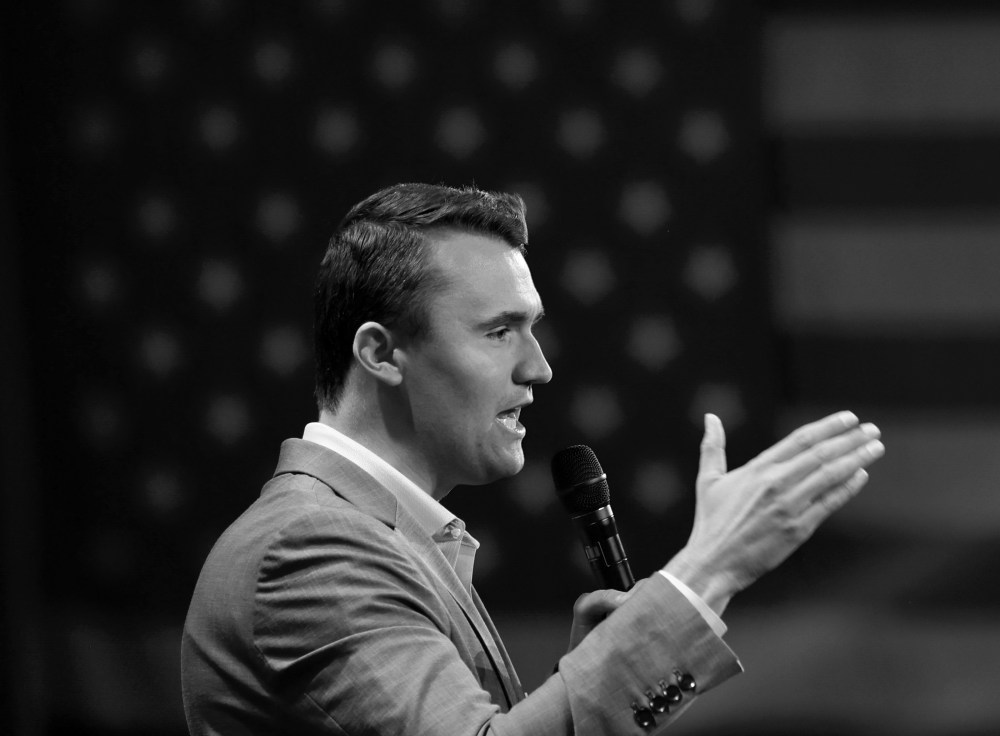


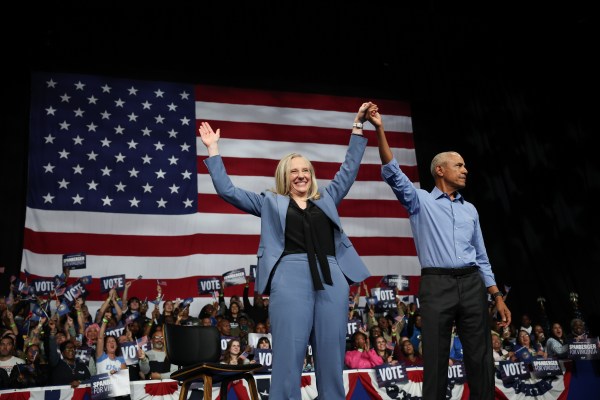
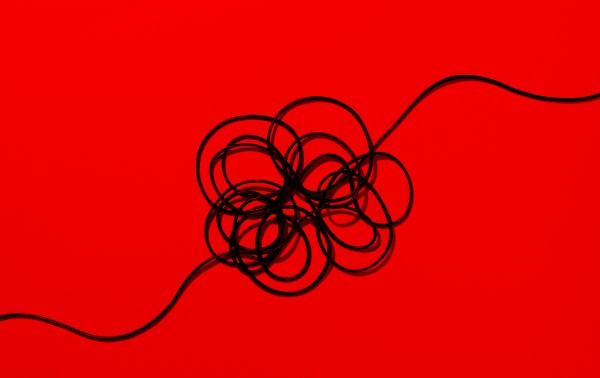
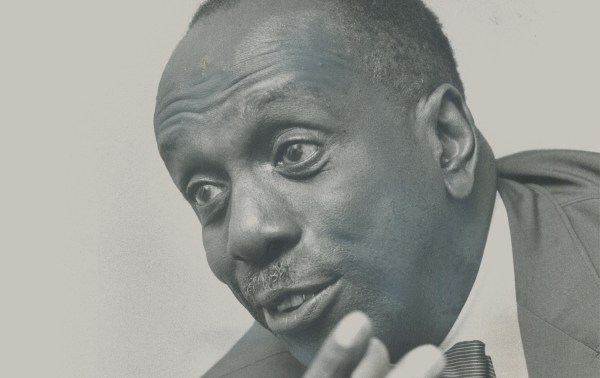

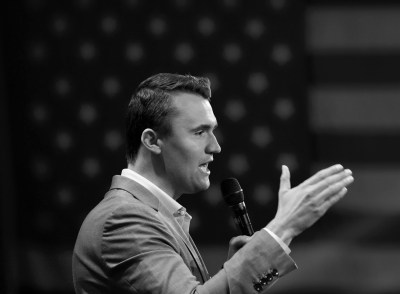
Please note that we at The Dispatch hold ourselves, our work, and our commenters to a higher standard than other places on the internet. We welcome comments that foster genuine debate or discussion—including comments critical of us or our work—but responses that include ad hominem attacks on fellow Dispatch members or are intended to stoke fear and anger may be moderated.
With your membership, you only have the ability to comment on The Morning Dispatch articles. Consider upgrading to join the conversation everywhere.